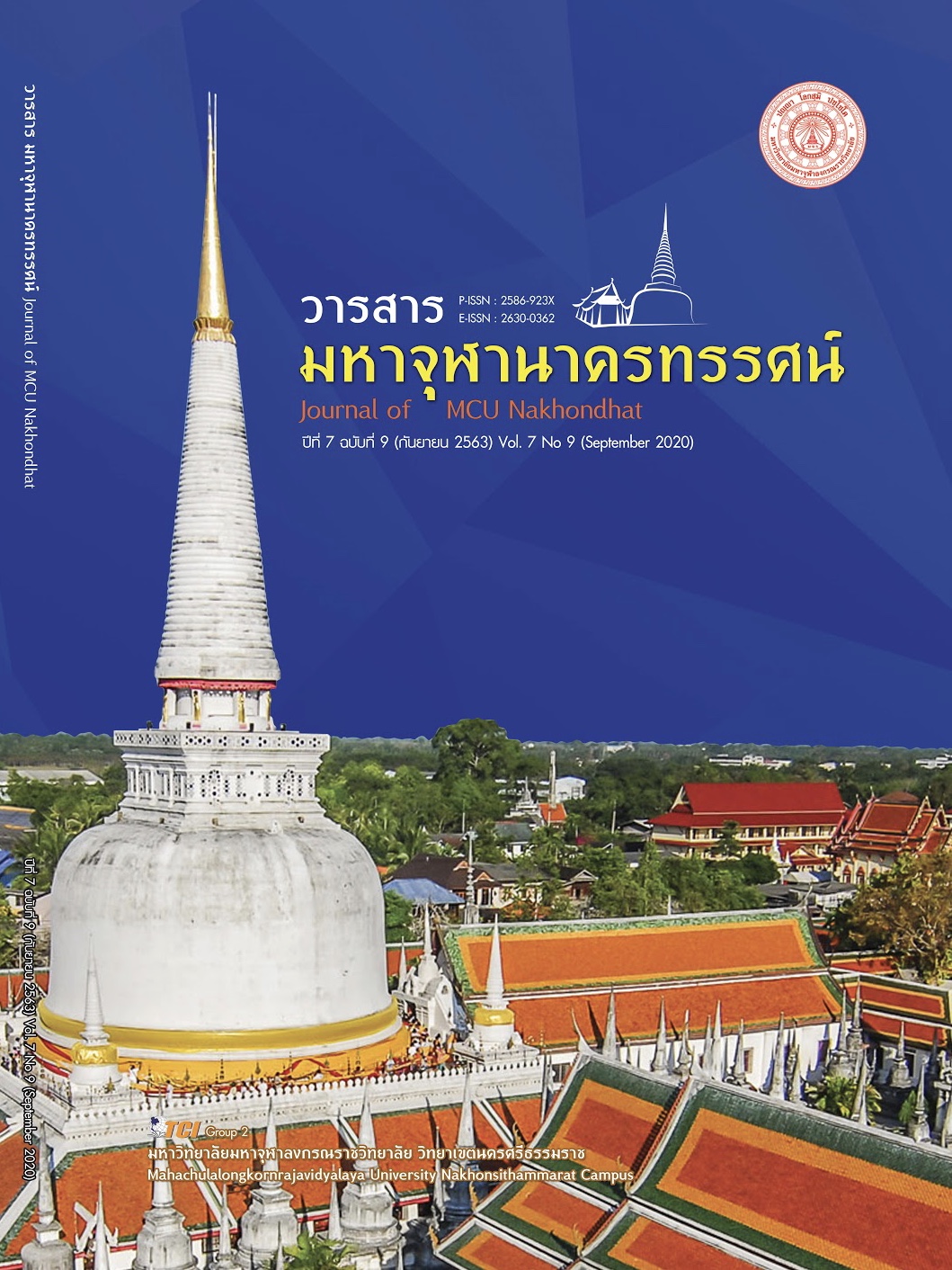EDCATIONAL MANAGEMENT IN THE 21st
Main Article Content
Abstract
Educational management in the 21st century requires the development of additional skills and the need for learning and innovation skills consisting of 3R4C 3 R: including Reading, Writing and Arithmetic, 4C: Critical Thinking, Communication, Collaboration, Creativity including life and career skills, skills in information, media and technology). New educational management includes the thought of the students' primary interest by managing teaching and learning in today's schools based on the potential to use technology that allow students to access information or devices such as computers, mobile phones, tablets, etc. With the method of shooting video clips of instruction and upload to the system, students are able to learn any time or any place with internet. As for the educational management in the 21st century, the new school administrators must be academic leaders and must have the following characteristics: 1) being creative, 2) communicator, 3) critical thinker, 4) community builder, 5) visionary, 6) collaboration and connection, 7) creating a positive energy, 8) confidence, 9) commitment and persistence, 10) willingness to learn, 11) being an entrepreneur with creative thinking and innovation and 12) being the intuitive, 13) having ability to inspire the others, 14) being humble and 15) a good model so that education can be arranged to yield the excellent outputs and outcomes.
Article Details
References
จารุวัจน์ สองเมือง. (2559). การบริหารสถานศึกษาในศตวรรษที่ 21. คณะศึกษาศาสตร์ มหาวิทยาลัยฟาฏอนี. เรียกใช้เมื่อ 21 มีนาคม 2563 จาก https://deepsouth watch.org/th/node/8009
ชัยยนต์ เพาพาน. (2559). ผู้บริหารสถานศึกษายุคใหม่ในศตวรรษที่ 21. การจัดการศึกษาเพื่อพัฒนาท้องถิ่นสู่ประชาคมอาเซียน: ทิศทางใหม่ในศตวรรษที่ 21. ใน รายงานสืบเนื่องจากการประชุมวิชาการระดับชาติครุศาสตร์ ครั้งที่ 1. มหาวิทยาลัยกาฬสินธุ์.
พระธรรมปิฎก (ป.อ. ปยุตฺโต). (2546). ธรรมนูญชีวิต. (พิมพ์ครั้งที่ 21). กรุงเทพมหานคร: โรงพิมพ์บริษัทสหธรรมิก จำกัด.
วิจารณ์ พานิช. (2556). วิถีสร้างการเรียนรู้เพื่อศิษย์. (พิมพ์ครั้งที่ 3). กรุงเทพมหานคร: ฝ่ายโรงพิมพ์ บริษัท ตถาตา พับลิเคชั่น.
สมหมาย อ่ำดอนกลอย. (2556). บทบาทผู้บริหารสถานศึกษาในศตวรรษที่ 21. วารสารบัณฑิตศึกษา มหาวิทยาลัยราชภัฏพิบูลสงคราม, 7(1), 6-7.
สิริรัตน์ นาคิน. (2557). จิตตปัญญาศึกษา: การเรียนรู้ด้วยใจอย่างใคร่ครวญ. เรียกใช้เมื่อ 21 มีนาคม 2563 จาก http://apps.qlf.or.th/member/blog/detail.aspx?id=199
สุทัศน์ สังคะพันธ์. (2557). ทำไมต้องทักษะในศตวรรษที่ 21 ในบทความทักษะแห่งศตวรรษที่ 21. ใน ดุษฏีนิพนธ์ปรัชญาดุษฎีบัณฑิต สาขาวิชาหลักสูตรและการสอน. มหาวิทยาลัยมหาสารคาม.
สุรศักดิ์ ปาเฮ. (2556). การพัฒนาวิชาชีพครูสู่ยุคปฏิรูปการศึกษาในทศวรรษที่ 2. ใน เอกสารประกอบการประชุมสัมมนาทางวิชาการ การพัฒนาครูทั้งระบบตามยุทธศาสตร์การปฏิรูปการศึกษาทศวรรษที่ 2. สำนักงานเขตพื้นที่การศึกษาประถมศึกษาแพร่ เขต 1,2.
Brown, M. E. & Trevi, L. K. (2006). Ethical leadership: A review and future direction. The Leadership Quarterly, 17(6), 595–616.
George Couros. (2010). The 21st Century Principal. Retrieved March 21, 2020, from https://georgecouros.ca/blog/archives/tag/21st-century-principal
Gerald Aungus. (2012). 21st Century Administrators: New Roles, New Responsibilities. Retrieved March 21, 2020, from https://geraldaungst.com/2012/03/21st-century-administrators-new-roles-new-responsibilities/
Hester, J. P. & Killian. (2011). The leader as moral agent: Praise, blame, and the artificialperson. The Journal of Values Based Leadership, 4(1), 93–104.
Maxine Driscoll. (2015). TOP 10 CHARACTERISTICS OF AWESOME 21ST CENTURY SCHOOL LEADERS. Retrieved March 21, 2020, from https://thinkstrategicforschools.com/top-10-characteristics-21st-century-school-leaders/


